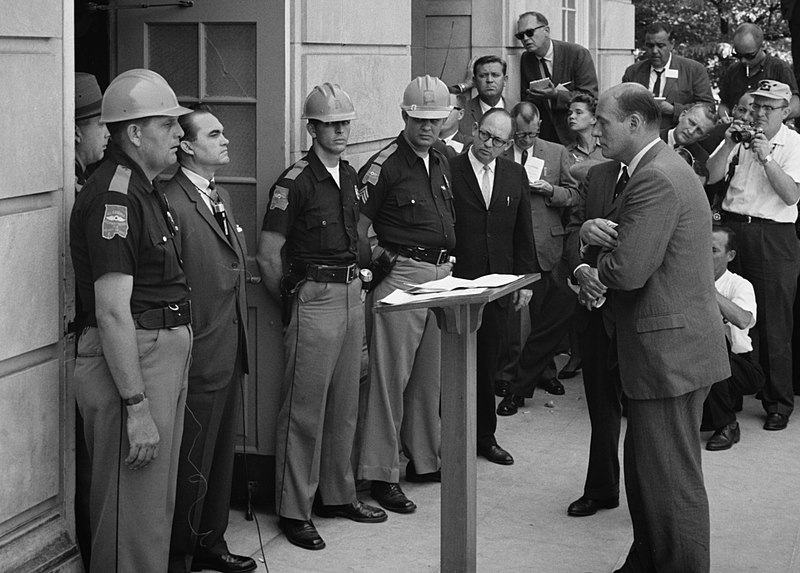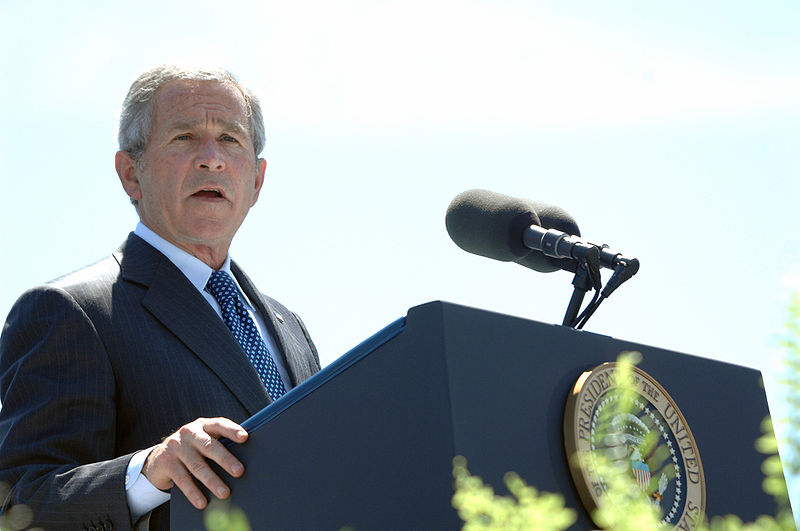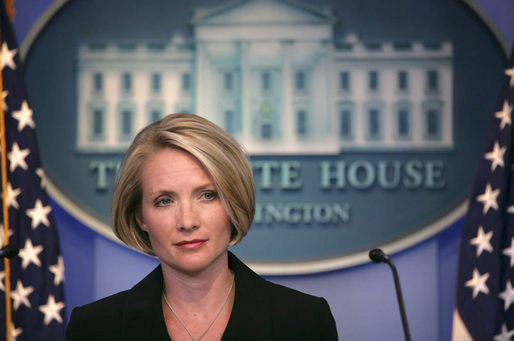
[digg-reddit-me]Thesis #1: There is a glaring discrepancy between:
- the populist right’s rhetorical opposition to all domestic government action on the grounds that it is incompetent, ineffective, and a threat to liberty; and
- the populist right’s support for apparently unlimited government power on national security and law enforcement matters on the grounds that it is highly competent, effective, and the defender of liberty.
(Initial post on the subject.)
———
These contradictory views of the state have been a part of the populist right since its modern inception — you can see it in Barry Goldwater, in Ronald Reagan, in George W. Bush. In fact, despite the rhetorical agitprop that has accompanied every surge in the populist right, it is impossible to understand the inflows of energy into and out of it, or to understand how it has acted when entrusted with power, while taking seriously the anti-government views it constantly invokes.
Thesis #2: Populist right wing movements have not been historically anti-government despite their rhetoric; they have been anti-minority. They have supported the expansion of government power to check the threats from minorities and opposed the expansion of government power to benefit any minorities.
———
Rather than opposing “government” as a whole, the populist right has gained its energy and support from opposing liberal government and especially from opposing liberal government support for the rights of individuals who are members of minority groups. They have also supported programs in which the government is seen to strongly take on the interests of individuals who are members of minority groups.
Given the rhetoric in recent days from Virgina Governor Bob McDonnell and the geographical concentration of the Republican Party and populist right in the Southern states that rebelled in the Civil War, it’s worth pointing out that that conflict was described by the Confederacy at the time, and by McDonnell today, in anti-government terms — as about “states’ rights” rather than slavery.
The populist right was decimated by Franklin Delano Roosevelt’s presidency but finally began to become energized in opposition to the Civil Rights Movement as the South quickly flipped to the Republican Party; it further was energized by the feminist revolution and the rise of the counterculture in the late 1960s. Then Nixon became president and the populist right quieted down as he expanded government in every direction and the Supreme Court legalized abortion. After 2 terms of Republican rule, a liberal became president, was accused of being weak and not loving America enough, and the pro-life movement began to gather strength; and once again, the party of limited government and cheery jingoism made a comeback with evangelical fervor. Ronald Reagan also expanded government, but reduced it’s role in helping minorities and the middle class, reduced regulations on corporations, and lowered the tax burden on everyone a little and the rich a lot. Once again, the populist right was quiet. The first Bush was never comfortable with the populist right and a splinter group broke away from his electoral coalition causing him to lose the 1992 election to a young, fresh-faced liberal. Once again, the populist right was called to arms with the militia and white supremacist movements thriving (encouraged by Ron Paul who saw them as a necessary evil). With welfare reform, budget surpluses, tax cuts for the middle class, and a humming economy, Clinton managed to quiet the populist right’s rage at government. But the right wing elites still despised the man, convinced he was somehow not a legitimate president. They fostered various conspiracy theories about his murder of Vince Foster, about drug running in Arizona, and about hundreds of women. Later, a second Bush was elected and once again trimmed regulations protecting consumers but expanded government involvement in security, in education, in helping the elderly further — but the populist right rallied to him as he invoked mythical Democrats endorsing therapy for terrorists and expanded the government’s powers to go after terrorists.
The populist right finally broke with Bush when he tried to push through immigration reform in 2006. Meanwhile, a massive investment bubble was growing under the hands-off policy of Bush and as it popped in the late summer and early fall of 2008, with the election looming, he oversaw the first steps of the cleanup of the mess — the infamous bailouts. The populist right (along with the populist left, the populist center, and most everyone) was angered and invigorated by this bailout. The populist right was further motivated by a personal animus towards Obama, as they were told that he wasn’t American in the way the rest of us were, that he was foreign, that he would “stand with the Muslims,” that he was sympathetic to terrorists.
After a brief lull after their defeat in the election, the populist right was once again galvanized by the health care debate and Obama’s treatment of suspected terrorist detainees. After some early talk of the health care bill as a secret conspiracy to give reparations to black Americans for slavery (it wasn’t) and controversy over covering illegal immigrants (it doesn’t), the attacks on the bill from the populist right centered on the idea that it was a government takeover of 1/6th of the American economy (it isn’t). Meanwhile, regarding the treatment of detainees, Obama has largely continued Bush’s policies with some attempts to… Yet despite this, the populist right has rallied to the idea that Obama is engaged in various treasonous activities and of endangering American lives.
What you see is a Republican Party that exists to expand and use government to benefit large corporations, the military-industrial complex, the rich, and the elderly at the expense of everyone else. At the same time, the populist right loudly objects to the government being used to benefit anyone but them. “Them,” meaning the elderly, the rich, the white Southerners. Which is why Republicans and the populist right are in favor of Medicare — and against Obamacare. Which is why they don’t mind when people that they would never be mistaken for are held without trial, tortured, or killed — and it’s why they are so outraged when people they might be mistaken for are. Which is why they rally when a liberal is in charge and are calm when a Republican is.
The populist right has been inherently about opposition — and about cultural alienation. It is about ressentiment and anger at how the world is changing. It has indisputably been invigorated by racial tensions — from opposition to the Civil Rights Movement to absurd claims of “welfare queens driving Cadillacs” to the militia movement of the 1990s. It is about feeling shafted by the powers that be. It is a very white movement, with resentment being driven against government rights and benefits being given to different groups that are stereotypically associated with minority groups: Latinos (illegal immigrants), blacks (criminals and welfare queens), and Muslims/Arabs (terrorists).
Conclusion: Resentment of minority groups (broadly construed) makes sense of the populist right’s contradictory views on government in ways that opposition to the government cannot and explains its historical rises and falls.
N.B. I am not claiming all right wingers are racist. Or Republicans or conservatives. I am merely pointing out the fact that the populist right has historically been empowered during times of racial tensions and that it’s positions are coherent and do make sense if understood in these terms while they do not if one interprets these rises and falls from an ideology opposed to big government.
[Image not subject to copyright.]







